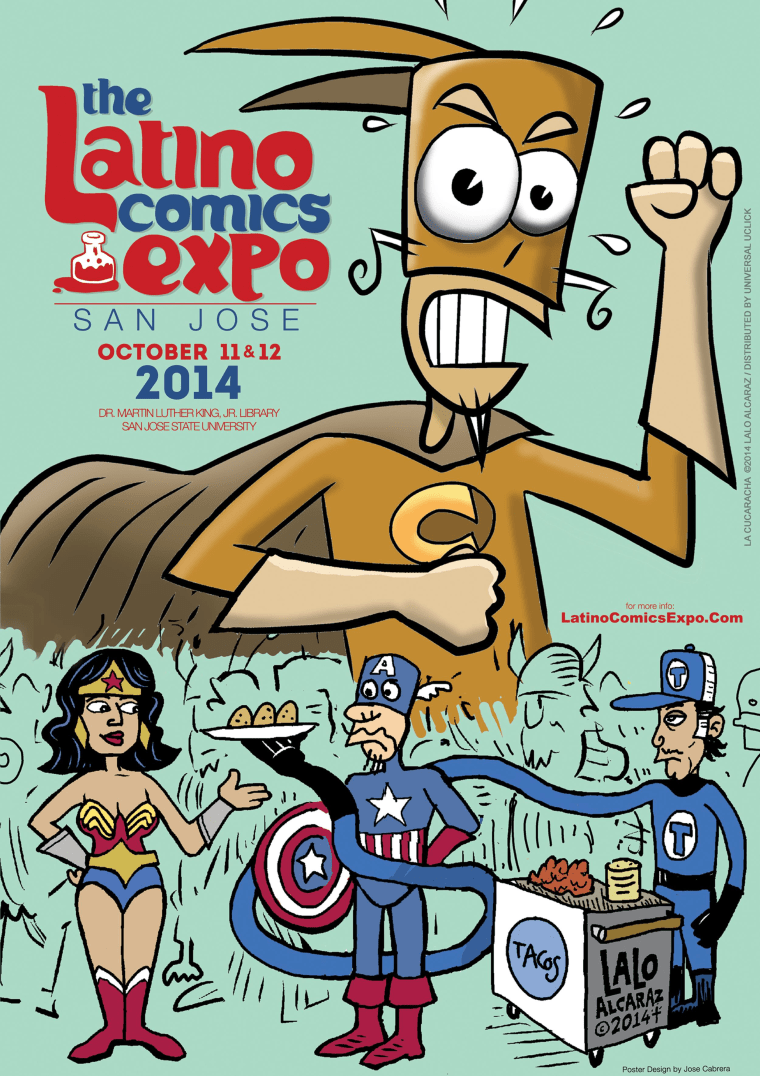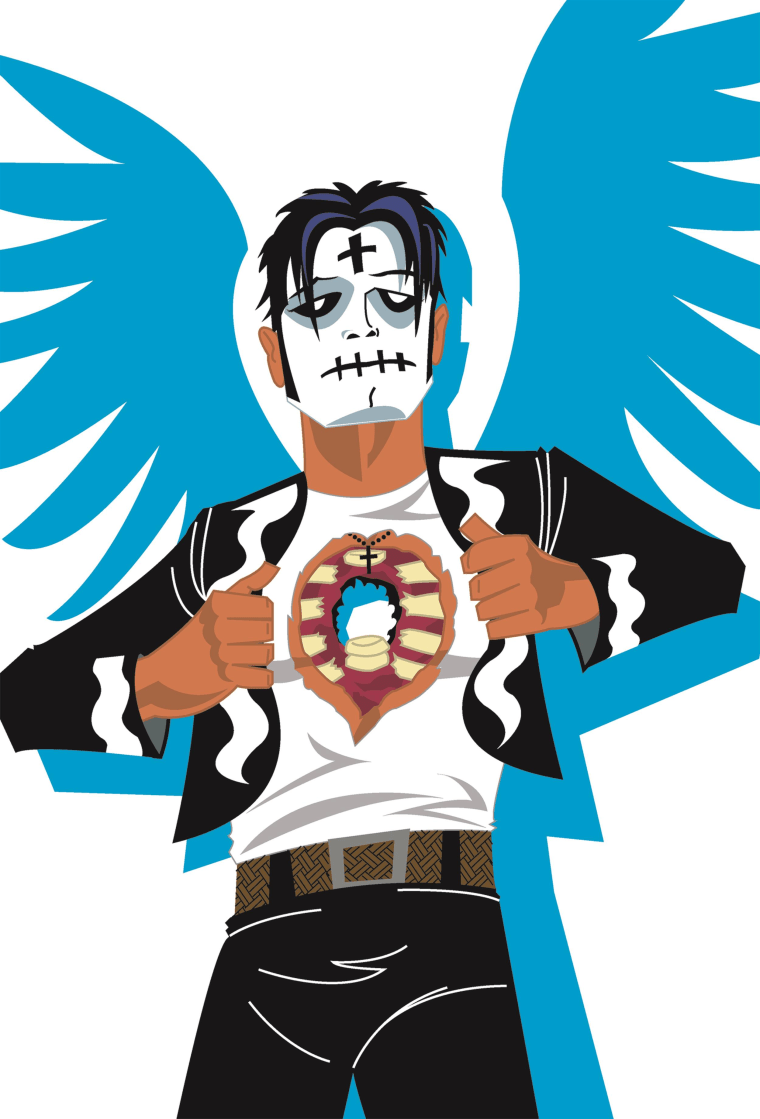For those who think comic books are outdated or just for kids, think again. Blockbusters like Captain America: The Winter Soldier or X-Men: Days of Future Past and Guardians of the Galaxy have brought large casts of superheroes to the silver screen in 2014. Comic book conventions attract thousands of fans dressed up as Batman, Wonder Woman, Spider-Man and other superheroes.
For fans attending The Latino Comics Expo Saturday and Sunday in San José, California, comics are a great opportunity to reconnect with Latino roots within a fun and important aspect of American pop culture.
Comic book aficionados will tell you that superhero stories are modern mythologies that challenge you to answer difficult questions and inspire you to change your life. In a phone interview with NBC News, Expo co-founder and comic book creator Javier Hernandez said that while Latinos can relate to X-Men, The Fantastic Four and Spider-Man, seeing your own story in a comic is even more empowering.
“I love all those [superhero comic] books I grew up reading,” said Hernandez, “but there is one thing I didn’t see in those books. I didn’t see me in there. I didn’t see us, Latinos… [so] I wanted to put out a comic that covered something that is not really addressed in mainstream culture.”
"I didn't see me in there," said Javier Hernandez, creator of the comic book "El Muerto," of the comic books he read as a kid.
Hernandez’s comic book El Muerto combines Aztec mythology with Mexican folklore to create a good, old-fashioned American superhero. Diego de la Muerte dresses up in a Mariachi costume with calavera (skull) makeup. And on his way to the Día de los Muertos festival, he is killed and transformed into a zombie by the Aztec God of Death.
Latino readers will identify with underdog de la Muerte who has to rebel against a larger-than-life entity to become a hero. But the 21-year-old zombie is most compelling when he struggles between multiple identities—he is alive and dead; he grew up Catholic but is empowered by an Aztec God.

Latino comic books are important, according to Expo co-founder Ricardo Padilla in a phone interview, because they are our “first bridge to literacy,” encouraging readers to cross different borders and see themselves dressed up as Mexican wrestlers, mariachi zombies and caped-crusaders. As Latino readers imagine themselves inside the story, battling enemies and overcoming obstacles, they can push the limits of their identities and switch between Aztec, Mexican and American cultures.
While comics are a popular American art form, literary superheroes have been around for a long time. Four hundred years ago, Miguel de Cervantes’ Don Quixote was already a superhero—he changed his name to become a knight, put on a thin-armored costume, and ventured out on horseback to fight injustice.
Centuries later, Hernandez and Padilla hope the larger-than-life characters in recent comic books can inspire readers on a heroic journey to connect via their varied yet relatable cultures.
“We wanted to create a comic book experience for Latino fans,” said Hernandez. “Put different experiences under one tent at the Expo… and every exhibitor they visit is another [stage, snapshot] of the Latino-American experience,” he said.
Follow NBC News Latino on Facebook and Twitter
The Latino Comics Expo features panels with the Hernandez Brothers, creators of Love & Rockets, as well as self-published Latino comic pioneers. Among these are Richard Dominguez (El Gato Negro), Carlos Saldaña (Burrito), Rafael Navarro (Sonambulo) and Rhode Montijo (Pablo’s Inferno), as well as newly self-funded Latina creators Jules Rivera and Marisa García.
Here are a few must-read Latino comics from Expo artists that will inspire you to set out on your own quixotic adventure:
Death of Speedy by Jaime Hernandez - One of the most memorable stories from Love & Rockets, the senseless gang-related death of Speedy Ortiz changed the way we see Latinos in comics and inspired younger generations to tell their own stories.
Bumperhead by Gilbert Hernandez - Have you ever wondered what the life of a Latino punk fan is like? Meet Bobby, a Mexican-American kid growing up in Oxnard, California.
Zotz: Serpent and Shield by Daniel Parada - “Zotz,” which means “bat” in some Mayan languages, is a 16th century story about Mesoamerica that asks: what if the Aztecs and Mayans had driven out the Spaniards?
And while this is not a superhero type of comic book, check out A Most Imperfect Union, illustrated by artist and illustrator Lalo Alcaraz (of the daily comic strip La Cucaracha) and author, professor and cultural historian Ilan Stavans. It's a comic book history of America written by two Latinos and told from the perspective of some of the country's most humble people - workers, immigrants, soldiers, students, slaves and housewives - who are often overlooked in other textbooks.
